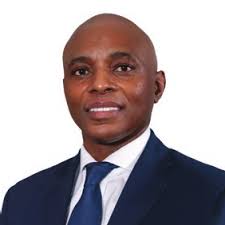South Africa stands at a critical juncture: Infrastructure backlogs are deepening, trust in public systems is eroding, and a generation of qualified youth remains locked out of the economy.
According to the Department of Public Works and Infrastructure in 2024, 164 out of 206 projects (79%) supervised by the department were delayed or underperforming. The causes include inefficiencies, budget overruns and poor oversight. While these may appear to be technical issues, they reflect deeper systemic problems tied to ethics, leadership and institutional capacity. They obstruct our ability to rebuild the country and must be addressed with urgency.
If we are to rebuild South Africa, transformation must become the cornerstone of progress in the built environment professions, particularly quantity surveying (QS).
It’s about people
Transformation is, at its core, about people. Consider the story of a young woman who once dreamed of becoming an accountant. Her father, a labourer in a large construction firm, couldn’t afford university fees. Instead, she secured a QS scholarship, excelled in her studies, and is now a registered Professional Quantity Surveyor (PrQS), making a meaningful contribution to the industry.
Her journey is one of many that demonstrate the power of opportunity. When doors are opened and potential is nurtured, lives are changed, and the profession is enriched.
Strategic systemic change
True transformation goes beyond access, it requires creating systems that are accessible, supportive, and accountable. This is how we enable talent to flourish, uphold ethical standards, and deliver meaningful value to the public.
It means modernising outdated systems, opening doors to historically excluded individuals, and making space for new voices, ideas, and ways of working. It also means embracing diversity not only in race, but in socioeconomic background, geography, education pathways, and professional perspectives.
Inclusivity must extend across urban and rural contexts and into built environment disciplines beyond QS. This is not only a moral imperative but a strategic one.
The future is already here
The demand for agile, future-ready quantity surveyors is growing. With the rollout of the National Infrastructure Plan (NIP) 2050 and the country’s commitment to a just energy transition, our profession must be equipped to lead.
In a context of ongoing load shedding, service delivery protests, and a projected R2 trillion infrastructure funding gap over the next decade, the question is no longer whether transformation is necessary; it’s how quickly we can align with new national priorities.
The QS of the future must be able to cost renewable infrastructure, understand the financial impact of climate resilience, and promote inclusive procurement practices.

Connecting the dots
Transformation is the bridge between the public’s call for accountability, the economy’s need for innovation, and young people’s hope for opportunity.
By adapting our policies, we open doors to rural students, TVET graduates, and first-generation professionals, individuals who bring contextual insight and grounded solutions to complex infrastructure challenges.
By transforming how we work, not just who we work with, we elevate the QS profession as a strategic enabler of national development. This includes safeguarding ethical standards and serving as an independent voice in the infrastructure process, both of which are critical to restoring public trust.
Collaboration is key
Transformation cannot be achieved in isolation. It demands collaboration across government, academia, and private industry.
We continue to engage with the Department of Higher Education and Training to align with the NQF framework and funding models that support students from all backgrounds. We are also working closely with sister councils in the built environment to ensure a coordinated and holistic transformation agenda.
In the private sector, our approach is grounded in shared purpose. Rather than presenting transformation as a compliance demand, we frame it as a mutual opportunity. How can we work together to build an industry that is more reflective, inclusive, and future it?

Arthur Quphe, President of the South African Council for the Quantity Surveying Profession
Encouragingly, we are seeing growing engagement particularly from sectors like mining, where the strategic value of our skills is increasingly recognised.
We invite all stakeholders, both public and private, to join us in shaping a profession that not only mirrors South Africa’s diversity but leads the way forward with integrity and excellence.
Ultimately, transformation is not just about the profession we inherit. It’s about the country we want to leave behind. That is why transformation is, and must remain, the foundation of a future-proof profession.
By Arthur Quphe, President of the South African Council for the Quantity Surveying Profession (SACQSP)









